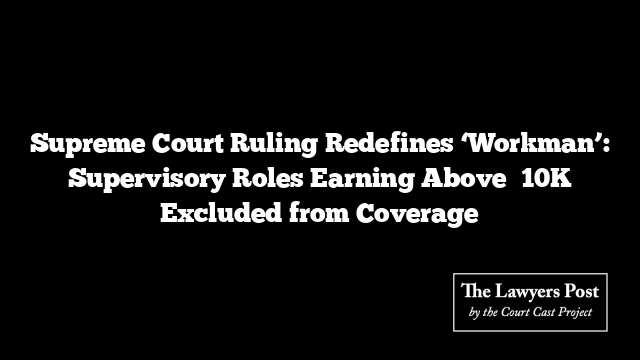In a recent verdict, the Supreme Court ruled that employees in supervisory roles earning more than ₹10,000 per month are not classified as “workmen” under the Industrial Disputes Act, 1947. The ruling stems from a long-standing dispute involving a former employee of a publishing company who challenged his termination in 2003. Although the employee’s position evolved from Junior Engineer to Assistant Engineer, the Court found that his supervisory duties and wage level exempted him from “workman” status.
The controversy began when the employee was dismissed in 2003 with a month’s salary in lieu of notice. He argued that his termination was unlawful, claiming protection under the Industrial Disputes Act, which defines a “workman” based on job duties rather than title. In this case, the key factor was the nature of the employee’s duties at the time of dismissal. Despite the employee’s contention, the Court emphasized that his supervisory role, including overseeing junior engineers, made him ineligible for reinstatement under the Act.
Initially, the Labour Court had ruled in favor of reinstating the employee and awarded compensation, but the High Court later overturned this decision. The Supreme Court’s recent judgment reinforces that the Act’s definitions, both before and after amendments, place supervisory employees with higher earnings outside the “workman” category. Thus, the employee’s claim was dismissed, and the Court held that the management followed correct procedures during termination.
This case marks a significant precedent, underscoring how supervisory duties and wage limits interact under labor law and impacting future definitions of workforce eligibility in labor disputes.





